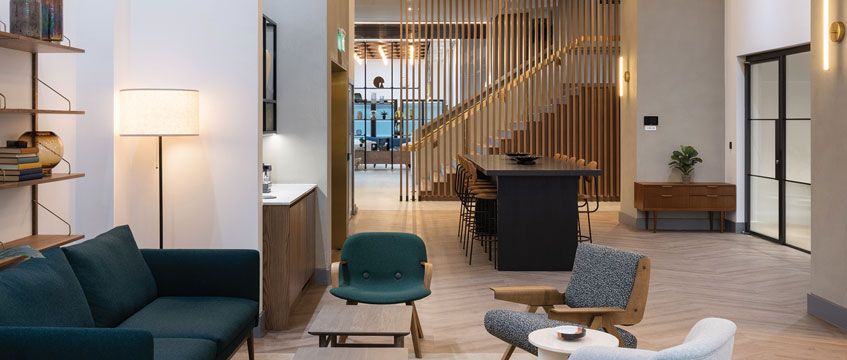EDITOR’S COMMENT: April Fool’s Day was almost three months ago, but I almost felt like double-checking this week when I read about flexible office group IWG’s team-up with fashion designer Giles Deacon.
The parties have collaborated on – checks notes – a “post-pandemic workwear collection” that is “designed to combine office sharpness with lockdown comfort style”. Deacon says the garb has been made with the hybrid worker in mind. No word on IWG founder Mark Dixon’s personal involvement, but he’s a man of style so I’m sure he was keeping a close eye on the designs.
If nothing else, the move demonstrates Dixon and his team’s belief that people are going to get back into their offices soon (they’d better do if IWG has any hope of turning its yawning loss around).
But story after story over the past week suggests that big corporate occupiers are in no rush to see workers back at their desks – or to impose that on them even when the doors reopen.
Take Deloitte. I’m not the biggest Star Wars fan, but having your latest workplace guidance described as a “Jedi move” sounds like a positive thing, and that’s how Firstbase founder Chris Herd described Deloitte’s decision to let all 20,000 of its UK employees decide where they work from indefinitely.
Chief executive Richard Houston was as blunt as it gets: no rules, no expectations. No demands for staff to be in any particular location for any particular amount of time. Instead, the chief executive said, the accountancy firm will trust its staff to “make the right choice in when, how and where they work”.
Will Houston have a problem? Probably not. Deloitte will have more than a year of data and anecdotal evidence now on how its employees have handled working remotely. The new rules (or lack of them) suggest that it has decided it can make as much money, win as many clients and keep everyone happy regardless of where they are. And perhaps poach talent from rivals that have been more restrictive. Nokia seems to think the same, as does Wates Group. Both announced their own flexible-first workplace strategies this week.
And this isn’t bad news for real estate – at least, it isn’t bad news for good real estate. Deloitte might need fewer offices, ultimately, but those it needs will be of even greater significance for its teambuilding exercises, for client meetings and for those members of staff who simply want to come together to do their jobs.
A more flexible approach to remote working is too often seen as being anti-office. It isn’t. It’s a catalyst that can transform our workplaces for the better – and perhaps, over the longer term, even encourage the return of workers who thought they would now do most of their work from home. It can reshape what the modern office looks like – just ask the team at law firm Slaughter and May, which shared its experiences of a hunt for new space during the pandemic. There will be obstacles for the market – not least what lower occupation will mean for rents – but a grade-A building should still be a grade-A building.
So forward-thinking developers and owners of those offices that will be not just nice-to-have but great-to-have should have little to fear from decisions such as Deloitte’s. If a company doesn’t expect staff to come to the office so often, isn’t it even more important that it wows them when they do?
But for the owners of clapped-out, tired offices? This is probably brown trousers time. IWG and Giles Deacon might just have something in your size.
To send feedback, e-mail tim.burke@eg.co.uk or tweet @_tim_burke or @EGPropertyNews










